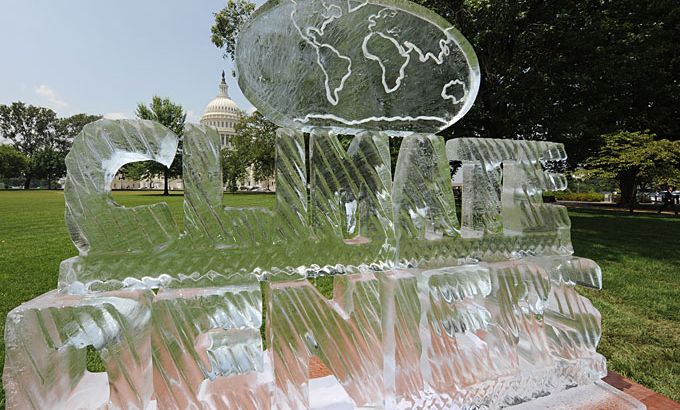
Why Americans doubt man-made climate change
How are climate sceptics impacting the US political debate?
It was 42 years ago that the first Earth Day was organised in the US, drawing millions of Americans to rallies across the country calling for a sustainable environment.
|
“There is no time to politicise this issue. Climate change is a global scientific consensus…if there is politicisation going on its really inappropriate… Politicising global warming just delays dealing with those [water security] questions.” – Lynn Thorp, the national campaigns coordinator for Clean Water Action |
Some consider that day to be the birth of the modern environmentalist movement in the US.
Keep reading
list of 4 itemsAfter the Hurricane
World’s coral reefs face global bleaching crisis
Why is Germany maintaining economic ties with China?
Today the day is marked by millions around the world but its impact in the US seems to have fizzled, with only dozens turning out at the National Mall in Washington DC on Sunday.
While the first Earth Day helped lead to the establishment of the US Environmental Protection agency, this year it was largely ignored by politicians and the public. The issue of climate change has barely come up on the US presidential campaign trail.
And for the Republicans it is something they would rather distance themselves from. Polls show that most Americans do believe in global warming but doubt is strongest among conservative Republicans.
|
“People who say they care about the environment but then encourage actions that actually impoverish people are the ones doing more harm than good, and that’s the kind of agenda we have in the White House now.” – Kenneth Green, a scholar at the American Enterprise Institute |
So why do most Americans still doubt that climate change is man-made? What is the politics behind the science of climate change and how are climate change sceptics impacting the political debate in the US?
Joining presenter Anand Naidoo on Inside Story US 2012 to discuss these questions and more are guests: Michael Mann, the director of the Earth System Science Center at Penn State University and author of The Hockey Stick and Climate Wars; Kenneth Green, a scholar at the American Enterprise Institute; and Lynn Thorp, the national campaigns coordinator for Clean Water Action, one of four organisations that endorsed US President Barack Obama’s record on the environment last week.
|
“There’s a real fallacy at work here, this idea that we can’t simultaneously grow our economy and deal with environmental issues… Economists who have studied this say the cost of inaction down the road would be far greater than the cost of action now.” Michael Mann, the director of the Earth System Science Center, Penn State University |
HOW THEY COMPARE (GALLUP POLL):
- Only 34 per cent of Americans believe that climate change is a result of human activity
- Nearly half of western Europeans think people are responsible for global warming
- In Latin America that figures rises to 56 per cent
- In developed Asian countries 76 per cent of responders believe the same